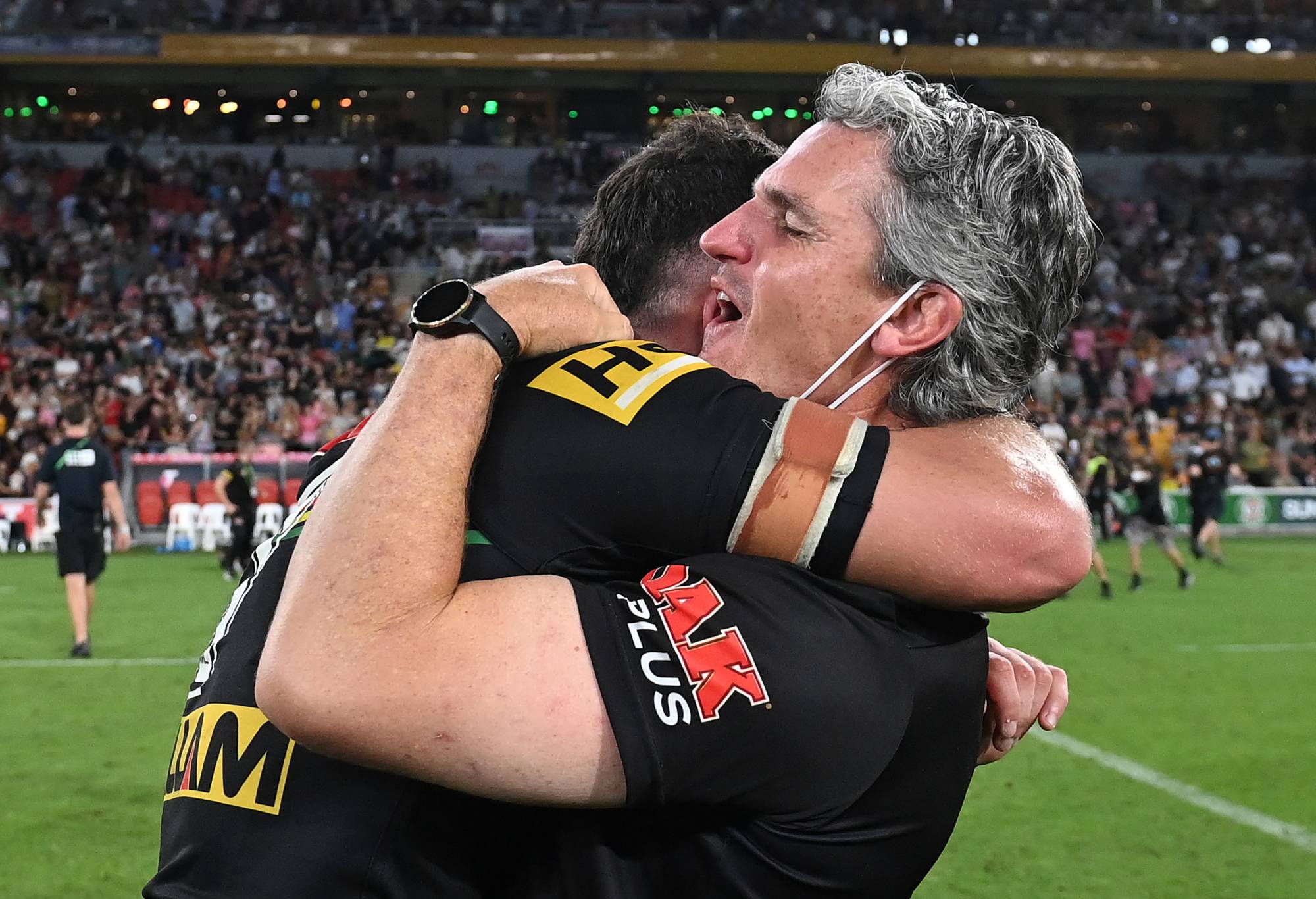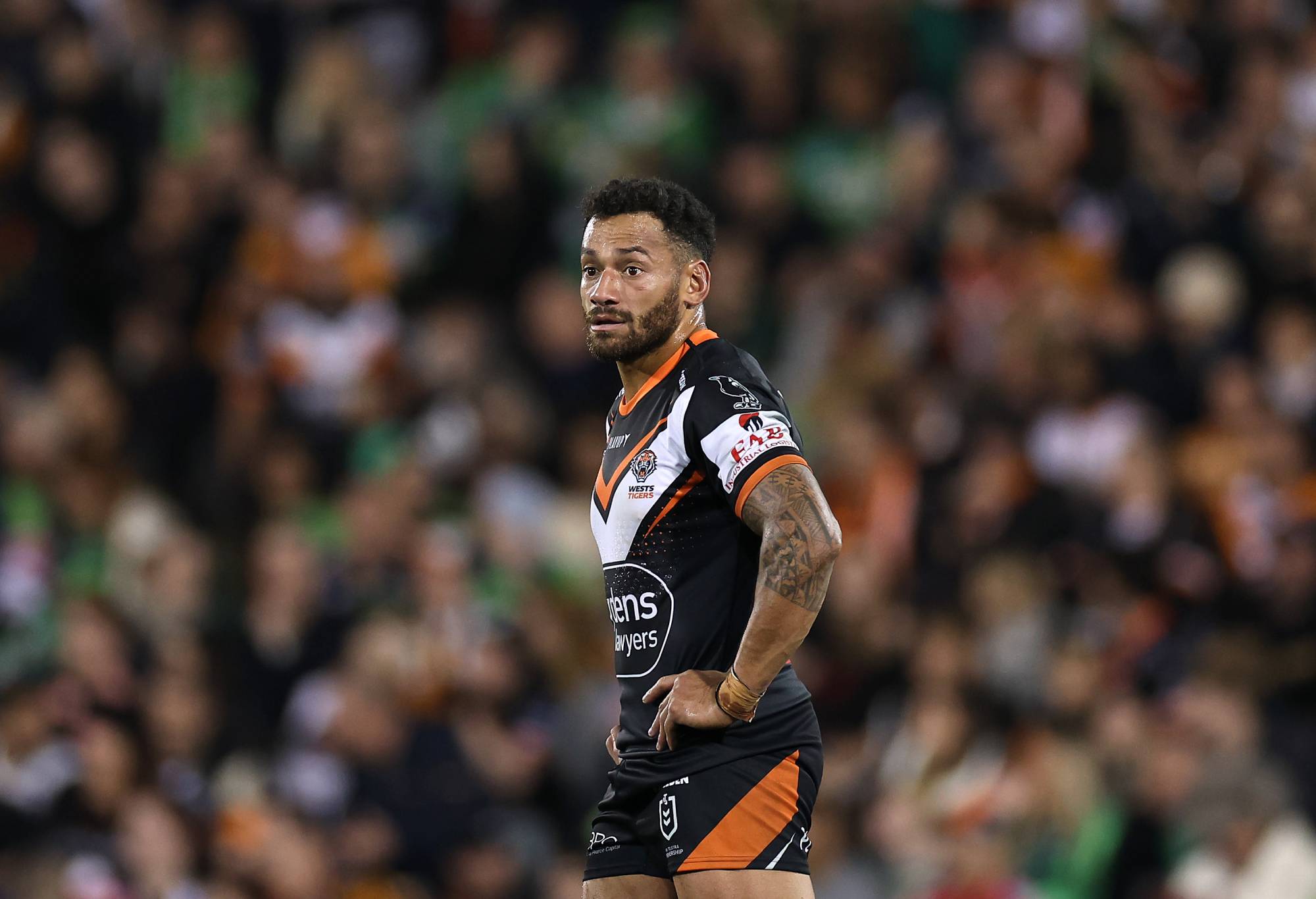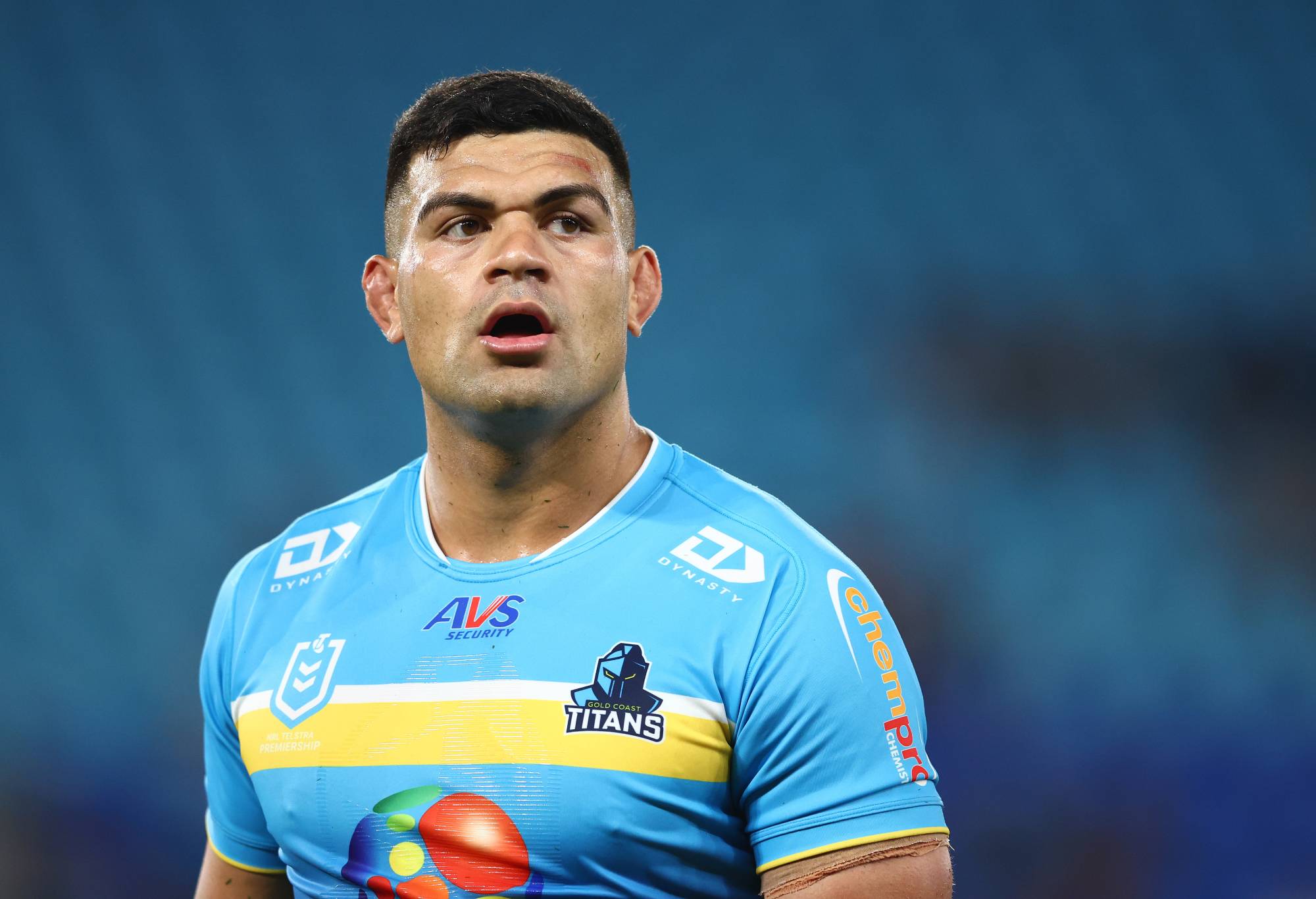Ivan Cleary is right when he says NRL clubs that produce their own talent should be compensated when rival teams plunder the players they have developed.
But when you are playing in a competition like the NRL where vested interests and hidden agendas reign supreme, the chances of it ever happening are slim.
In theory there should be a system where salary cap discounts are applied and there are other incentives for clubs to invest in their junior pathways.
But you only have to look at the two teams who dominated the NRL premiership before Penrith got their act together to realise that you don’t have to have a vast junior base to have a title-winning squad.
The Roosters and Melbourne fill the bottom rungs when it comes to junior clubs in their respective regions but they have held near perennial places at the top of the NRL ladder.
Talent identification and acquisition in the late teenage years can make up for having comparatively few juniors of your own.
You could argue it’s tactically smarter to not worry about the junior base and devoting resources to enticing the elite youth level talent to your club as the Roosters and Storm have done.
That’s not to say that these two clubs are rotting the system. They have both been very astute in the way they have attracted young prospects into their system.
There’s plenty of sense being employed, not just dollars.
And to be fair to them as well, there are historical and demographic reasons behind their lack of depth at the junior level. If you ever have a spare hour or three to kill with a Rabbitohs or Roosters fan, bring up the topic of the division of Sydney’s eastern suburbs and whether the geographical carve-up is fair or not.

Nathan and Ivan Cleary after the 2021 Grand Final win. (Photo by Bradley Kanaris/Getty Images)
One idea which has been around for decades and gets floated every so often is that each NRL club is assigned a country area or two and looks after the junior development in that region.
Again, it’s a fine theory on paper but if the clubs thought it was feasible or worthwhile, they would have pushed for this idea long ago.
Unfortunately it is not in each NRL club’s interests to plough money into a far-flung location and it would likely lessen the value of a club the next time an owner puts one on the market.
Scott Penn, for example, would never agree to stump up the funds for a team like Manly if it also meant taking on an annual loss-making exercise in bankrolling a regional area in the hope that it will eventually lead to a few players making the grade at their club.
The ARL Commission needs to do more to fund the areas outside of the NRL so that the base of the playing pyramid is sturdy enough to keep propping up the elite competition.
Rugby league has been fortunate in the past couple of decades that rugby union is no longer the financial threat it once was and the always overstated threat of the AFL in the NRL’s territory is barely making a dent on their access to the best young footballing talent on Australia’s Eastern Seaboard.
Penrith are one of the few teams that have virtually adopted country regions outside their heartland, which they clearly haven’t needed to do considering they have a vast junior nursery in Sydney’s golden west.
“In my heart I would love all those boys to still be playing here but we’d have about three teams then, so you can’t do it,” Cleary said earlier this week.
Canterbury Bulldogs
v
St. George Illawarra Dragons
NRL : Head To Head
Thu, 23 May 2024, 19:50
North Queensland Cowboys
v
Wests Tigers
NRL : Head To Head
Fri, 24 May 2024, 18:00
Manly Sea Eagles
v
Melbourne Storm
NRL : Head To Head
Fri, 24 May 2024, 20:00
Canberra Raiders
v
Sydney Roosters
NRL : Head To Head
Sat, 25 May 2024, 15:00
Cronulla Sharks
v
Penrith Panthers
NRL : Head To Head
Sat, 25 May 2024, 17:30
South Sydney Rabbitohs
v
Parramatta Eels
NRL : Head To Head
Sat, 25 May 2024, 19:35
Brisbane Broncos
v
Gold Coast Titans
NRL : Head To Head
Sun, 26 May 2024, 14:00
New Zealand Warriors
v
Dolphins
NRL : Head To Head
Sun, 26 May 2024, 16:05
* Odds Correct At Time Of Posting. Check PlayUp Website For Latest Odds
Imagine what you could be buying instead.
For free and confidential support call 1800 858 858 or visit gamblinghelponline.org.au
Penrith’s three premiership-winning eras have been built around a bumper crop of local talent that was enhanced with the addition of a few hard heads from other clubs.
Greg Alexander, Brad Fittler, Mark Geyer and co would never have broken through for the maiden success in 1991 if not for Penrith getting the likes of Paul Dunn and Chris Mortimer to the club from Canterbury’s successful 1980s squads to teach them how to win.
In 2003 it was Craig Gower, Luke Lewis, Tony Puletua and Rhys Wesser benefitting from the imported wisdom of Luke Priddis, Scott Sattler and Martin Lang.
And in recent years, the nucleus of the three-time premiership winners was lifted to Grand Final glory via the groundwork laid by James Maloney, James Tamou, Api Koroisau and Kurt Capewell after they had been part of premiership-winning outfits elsewhere.
Penrith have deliberately prioritised the retention of their local products over imports as the salary cap has bitten into their roster in recent years.

(Photo by Cameron Spencer/Getty Images)
Imports like Tamou, Capewell, Paul Momirovski and Koroisau were the first to be told the club couldn’t match the money on offer elsewhere.
But now it’s at a point where blue-chip talent that the club has devoted plenty of resources into like Jarome Luai, Sunia Turuva, Spencer Leniu and Stephen Crichton have left or are on the way out. James Fisher-Harris requesting an early release on compassionate grounds to return to New Zealand and become a Warrior was an additional body blow that the Panthers didn’t see coming.
Mainly due to JFH jetting out, the Panthers are now in a position they have not been in for a while in that they can splurge on a high-profile recruit.
They have almost reached the envious heights that Brisbane enjoyed in the 1990s when they had virtually the entire Sunshine State as their production line as well as the financial clout to add a Glenn Lazarus, Gorden Tallis or Anthony Mundine when they have a particular position in need of boosting.

David Fifita. (Photo by Chris Hyde/Getty Images)
Penrith’s success has been built on hard work and a commitment to sacrificing individual rewards for the team goal.
Which is why it’s hard to see David Fifita fitting into that ethos – he seems keen to get out of his Titans deal or he is leaving it very late to take up the option for the 2025 portion of his contract.
Des Hasler’s philosophy of players exerting themselves to their absolute limits at training does not quite mesh with the reputation that Fifita has “earned” in recent years but if he thinks he can coast his way to a premiership at the Panthers, or Roosters for that matter, he is in for a rude awakening.
If there were discounts on offer for a team like Penrith in their current position, they might still be able to keep the likes of Crichton and Burton – then Canterbury’s tiny chance of causing an upset this Friday at BlueBet Stadium would be even smaller.
Most NRL clubs have strong junior pathways to bring forward the next generation of talent but some teams, like the Wests Tigers in particular, have been terrible at keeping them.
Whether a club focuses on developing their own talent or acquiring emerging players, it is just one part of the jigsaw puzzle of being a premiership force.
Other clubs are as rich as the Roosters and Storm, or richer, while some have a reliable pipeline of talent like Penrith but waste their dollars or can’t hang onto their own rising stars and end up watching on from afar with envy when the finals roll around.































































































